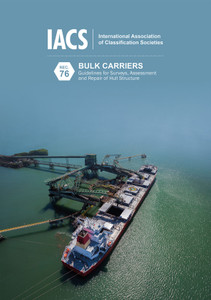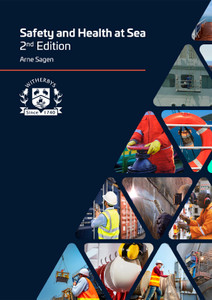
The Code aims to ensure that stowage and cargo securing arrangements for timber deck cargoes enable a safe yet rational securing of the cargo so that it is satisfactorily prevented from shifting. The 2011 TDC Code was adopted by resolution A.1048(27) at the 27th session of IMO’s Assembly in November 2011. This Code revises and updates the previous Code adopted in 1991 by resolution A.715(17). The 2011 TDC Code is non-mandatory and applies to all ships of 24m or more in length carrying a timber deck cargo.
The Code aims to ensure that stowage and cargo securing arrangements for timber deck cargoes enable a safe yet rational securing of the cargo so that it is satisfactorily prevented from shifting. 2011 TDC Code also includes alternative design principles, taking into account the acceleration forces cargo may be subjected to throughout the voyage.
Foreword
The Code of Safe Practice for Ships carrying Timber Deck Cargoes, 2011 (2011 TDC Code) was adopted at the twenty-seventh session of IMO’s Assembly in November 2011 by resolution A.1048(27). This Code revises and updates the previous Code adopted in 1991 by resolution A.715(17).
The 2011 TDC Code is non-mandatory and applies to all ships of 24 m or more in length carrying a timber deck cargo. The Code aims to ensure that stowage and cargo securing arrangements for timber deck cargoes enable a safe yet rational securing of the cargo so that it is satisfactorily prevented from shifting. The 2011 TDC Code also includes alternative design principles, taking into account the acceleration forces cargo may be subjected to throughout the voyage.
Foreword
Resolution A.1048(27)
Code of Safe Practice for Ships carrying Timber Deck Cargoes, 2011 (2011 TDC Code)
Preface
Chapter 1 – General
Part A – Operational requirements
Chapter 2 – General recommendations on stowage and securing of timber deck cargoes
Chapter 3 – Visibility
Chapter 4 – Physical properties of timber cargoes.
Part B – Design of cargo securing arrangements
Chapter 5 – Design principles
Chapter 6 – Alternative design principles
Chapter 7 – Uprights
Chapter 8 – Denotations used
Annex A – Guidance in developing procedures and checklists
Annex B – Samples of stowage and securing arrangements
Annex C – Instruction to a master on calculation of mass change of a timber deck cargo due to water absorption
Annex D – References
A??s a specialized agency of the United Nations, IMO is the global standard-setting authority for the safety, security and environmental performance of international shipping. Its main role is to create a regulatory framework for the shipping industry that is fair and effective, universally adopted and universally implemented.
In other words, its role is to create a level playing-field so that ship operators cannot address their financial issues by simply cutting corners and compromising on safety, security and environmental performance. This approach also encourages innovation and efficiency.
Shipping is a truly international industry, and it can only operate effectively if the regulations and standards are themselves agreed, adopted and implemented on an international basis. And IMO is the forum at which this process takes place.
- Number of Pages:
- 105
- ISBN:
- 9789280115499
- Published Date:
- June 2012
- Book Height:
- 250 mm
- Book Width:
- 210 mm
- Author:
IMO
- Binding Format:
- Paperback
- Preview:
- Yes
- Publication Date:
- June 2012






